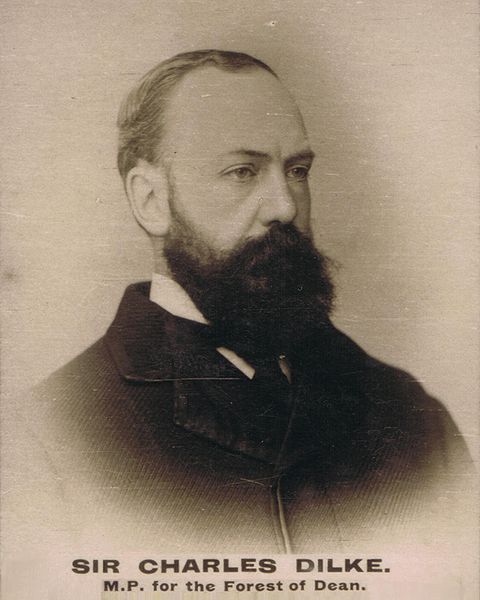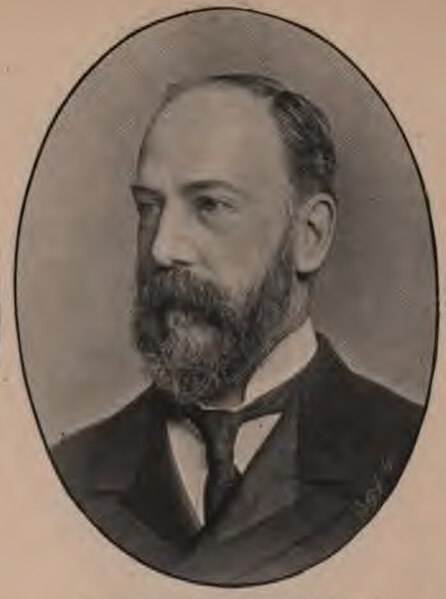Sir Charles Dilke, 2nd Baronet
Sir Charles Wentworth Dilke, 2nd Baronet was an English Liberal and Radical politician. A republican in the early 1870s, he later became a leader in the radical challenge to Whig control of the Liberal Party, making a number of important contributions, including in the legislation increasing democracy in 1883–1885, his support of the growing labour and feminist movements, and his prolific writings on international affairs.
Image from an Ogden's Cigarette Card
Sir Charles Wentworth Dilke, 2nd Baronet, by George Frederic Watts
Sir Charles Dilke c. 1895
Joseph Chamberlain was a British statesman who was first a radical Liberal, then a Liberal Unionist after opposing home rule for Ireland, and eventually served as a leading imperialist in coalition with the Conservatives. He split both major British parties in the course of his career. He was the father, by different marriages, of Nobel Peace Prize winner Austen Chamberlain and of Prime Minister Neville Chamberlain.
Chamberlain's third wife, Mary, by John Singer Sargent, 1902
William Ewart Gladstone, Lord Hartington, and Chamberlain as depicted in Vanity Fair, 6 July 1880
The Gladstone cabinet as depicted in Vanity Fair, 27 November 1883
In 1892, Chamberlain became leader of the Liberal Unionists in the House of Commons, beginning a fruitful relationship with Conservative leader and future Prime Minister Arthur Balfour (right).







